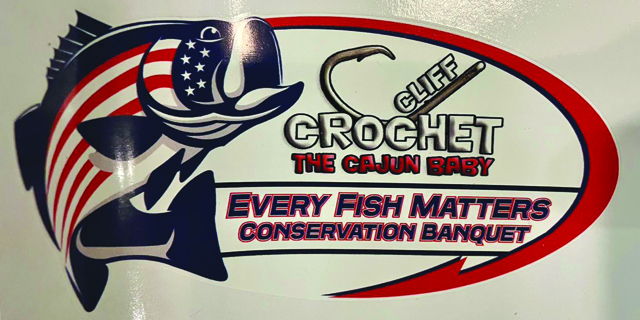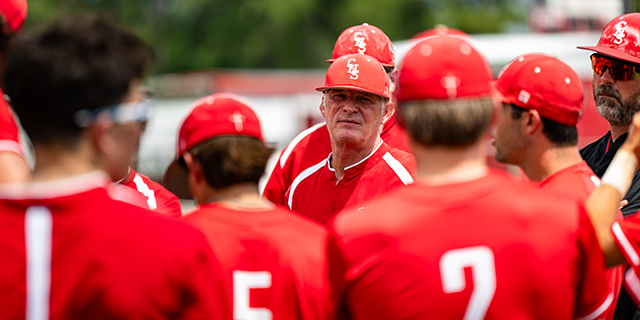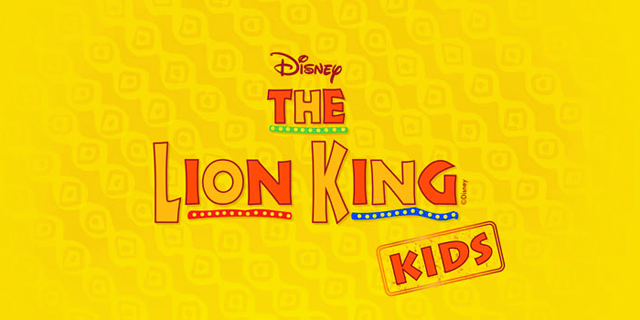It Takes a Village
Published 3:00 am Tuesday, January 17, 2023

- Entrepreneur and investor Chris Meaux.
Chris Meaux offers a succinct reality check for aspiring entrepreneurs who think they have the idea for the next Waitr. “Your idea is worth zero,” he says. Meaux founded the foaod delivery app Waitr in 2013 and served as its CEO until August 2019. He sold Waitr and now is the chairman and co-CEO of BoomNation, an app that connects businesses with skilled workers. Through his years as an entrepreneur and angel investor, he believes he has discovered where the true value lies. “The value is in the ability to build a team and create a company,” he says.
Trending
It’s the lesson he has learned from a lifetime of entrepreneurship.“It started with a lemonade stand,” Meaux says. “When I was 10 or 12, my sister and I started selling Christmas cards and wrapping paper door to door to win prizes and buy stuff with the credits we earned.” In high school, Meaux’s interest turned to technology. He struggled to find a way to make money in tech, until he met Michael Dell at an event when Meaux was in college. “He was just getting started,” Meaux recalls. “I had a conversation with him about building computers in his dorm room. That really got me interested. I thought, ‘This guy’s not much older than me.’”
Meaux went to work building computers, himself, and selling them to businesses. He worked for InterComp and Computer Land selling computers while he was in school and moved to Hyundai Electronics, recruiting retailers to sell the company’s computers in their stores. His first foray into software was with McAfee. He also worked on the tech side of a mortgage company and tried to launch an application service provider.
The kernel of the idea that became Waitr struck him when he found himself out of a job in 2009. “Growing up in Louisiana, I was always interested in food,” he says. “I wanted to meld restaurants with tech and I created Meauxs2Go. Users placed orders online, we printed them out, and we had a commercial kitchen where we’d cook and then deliver the order.”
Trending
The idea stalled when Meauxs2Go lost its commercial kitchen, Meaux says. He revisited the idea in 2013, with the idea of partnering with others to prepare the food, while he facilitated the delivery. “No one was doing that,” Meaux says. “GrubHub was facilitating orders, but not doing delivery.”
He found a startup weekend event where he could pitch the idea. That’s where he learned the lesson about building a strong team after watching someone else pitch a similar idea. “His idea was a box where you could order at the table, then change your order if you wanted to,” he recalls. “They asked him what he was going to call his company. He said, ‘Waitr, with no r.’ I liked his idea, too. But I liked it all in one app. I asked if I could join his team, and we won the weekend competition.”
Meaux told his new partners he could raise the money to make Waitr a reality. The man who pitched the similar idea chose not to join the new venture, but the other partners agreed. Meaux went to McNeese State University in Lake Charles to recruit the app developers the team needed. According to Meaux, teamwork remains the key. “Without cofounders, you can’t be a successful entrepreneur,” he says. “It’s people that make ideas successful.”
Meaux said that the prevalence of smartphones and lower costs for technology have lowered the threshold for tech-minded entrepreneurs to develop their ideas. He says it takes something more to succeed.“I think the most critical quality is being able to take chances and be able to bounce back when decisions you make don’t work,” he shares. “Learn lessons through all of those failures. After my failure, I didn’t get back until 2009. I was so beaten down thinking, ‘What did I do wrong?’ Those are the lessons I brought into Waitr and navigated through obstacles without fear of failure.”
Entrepreneurship a family affair for Meauxs
In the Meaux family, the apple didn’t fall far from the tree at all.
Chris Meaux’s son, Logan, grew up watching his father launch and operate Waitr. He worked as a delivery driver and later as a customer service representative for the company. In college, he learned the financial side of the business while pursuing the idea of becoming an investment banker. But a frustrating experience planning a birthday surprise for his dad set him on a new course.
Logan was trying to plan a father-son trip to hunt ducks and geese, but after a lot of effort and frustration, they did not see one bird on the trip. Chris still remembers the ride home from Oklahoma. “He was so dejected and disappointed,” Chris recalls. “He got angry. I told him I loved being out there with him, spending time together, whether we saw a bird or not. He said, ‘Dad, it was so much work. There’s got to be a different way.’”
A few weeks later, Chris took his uncle duck hunting on the family farm. He was glad to spend the time with his uncle, but he was not looking forward to getting out of the blind to retrieve the ducks. After the hunt, he told Logan it would be nice to have an app where hunters could request dogs and guides, along with finding and booking hunts. “He said he had been thinking the same thing,” Chris says. “I told him, ‘Logan, go for it. I will back you.’”
It wasn’t just about supporting his son. For Chris, it also fit his philosophy for investing in startups. “I invest in businesses I believe can bring value,” Chris says. “I backed my son to build a marketplace for hunting and fishing. It’s the Waitr of the hunting and fishing community.”
Logan brought on cofounders at LSU, and they raised $2 million to launch Mallard Bay, a website that helps hunters book trips. Chris reports it is “growing like gangbusters,” with hundreds of outfitters worldwide.
“It’s rewarding to see,” Chris says. “He’s doing the things he got to watch me do.”





